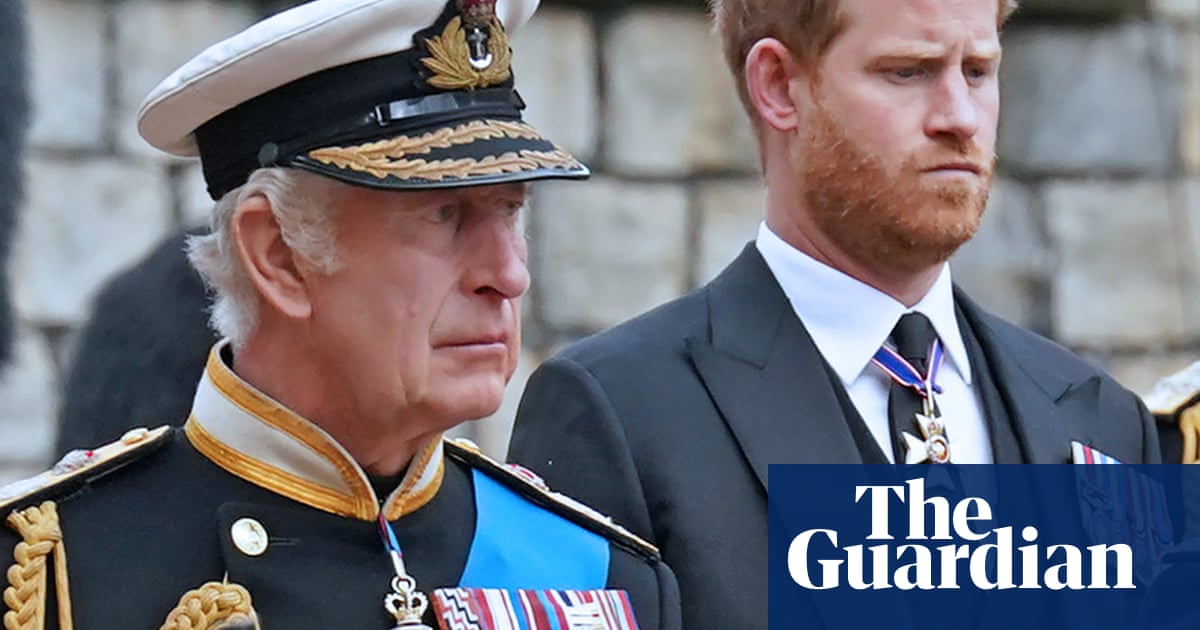For most families, fallouts and squabbles are a regular occurrence. But what happens when those rifts deepen to an estrangement, such as appears to have beset the royal family and the Beckhams, and how can relationships be rebuilt?
According to the following psychologists and psychotherapists, family reconciliation requires both sides taking accountability for their behaviour and not letting past grievances and trauma block efforts to meaningfully re-engage with estranged relatives.
Where an adult child is estranged – as in the case ofPrince Harry– parents and other relatives need to recognise whether the family narrative or culture is perpetuating this estrangement by portraying them as the troublesome rebel or outcast, say the experts.
The behavioural psychologistJo Hemmingssaid the Duke of Sussex’srecent emotional interview with the BBC, in which he said there had been many disagreements with his family, some of whom would never forgive him, illustrated the importance of both sides accepting accountability for past behaviour.
His comments about his family not liking him writinghis autobiography, Spare, did not appear to recognise it revealed “really private family confidences”, she said. This risked undermining Harry’s goal to reconcile with his father, King Charles, and the rest of the royal family.
Susie Masterson, a Bacp-registeredpsychotherapist in Stockport, said she encouraged estranged relatives to devise a verbal contract as to how they would like to engage with one another. This included the issues they were willing to talk about, and those that were off the table to begin with.
Estranged adults also needed to separate past grievances and trauma from their present desire for reconciliation, she said, and expressed concern that Harry may not have done this.
“I am not dismissing the hurt and the hardship,” said Masterson. “But if we want to move towards post-traumatic growth and we want to have family members in our lives, then we have to be able to reframe or at least compartmentalise that and move towards what we want to achieve or engage with together.”
Georgina Sturmer, another Bacp-registered counsellor, said it could be counter-productive for one party to seek a show of good faith from the other side, as Harry appeared to do by asking the king to intervene in his personal security provision. “I would probably be exploring with them what is the personal cost of the current situation and what would it be like for things to be different?” she said. “It’s those conversations that sometimes make us think, can I consider letting my guard down?”
Nicola Saunders, another counsellor, said where an adult child was estranged it was important for relatives to understand the family dynamics that may have pushed them out. Fear among other relatives of also being ostracised could exacerbate existing family divisions, she said, such as brothers or sisters rejecting a sibling already alienated from their parents.
“The family culture [can] create this narrative of, ‘Yeah, that person’s lying, they’re dramatic, none of what they say is true’,” said Sturmer. “It absolutely has a ripple effect. That’s common within a family – I’ll just keep my head down and I’ll reject my sibling because the last thing I want to be is be in their position.”
Parents should also be mindful if high expectations of adult children led to feelings of disappointment and contributed to the relationship breakdown, said Hemmings.
Experts said the partners of estranged family members could play an important role in rebuilding bridges if they are seen as neutral in the dispute. In the case of the royal family, the Duchess of Sussex has been blamed in the media for Harry’s estrangement, and similar complaints have been reported about Brooklyn Beckham’s wife, Nicola Peltz. In such cases, the estranged family member might choose their partner over their family, which hinders the reconciliation process, said Hemmings.
“The estranged person needs to have a secure person alongside them to support them in a way that is helpful rather than destructive,” Saunders added. “Sometimes there can be a lot of collusion from the partner, especially if it’s within their interest for that estrangement to be in place.”
The counsellor added that maintaining reconciliation involved developing a new kind of relationship between both parties. In the case of parent-child estrangement, this meant re-engaging as equal adults. “With respect, boundaries and trust, you have to treat them like bone-china because if any of them are broken then the relationship falls down again.”
